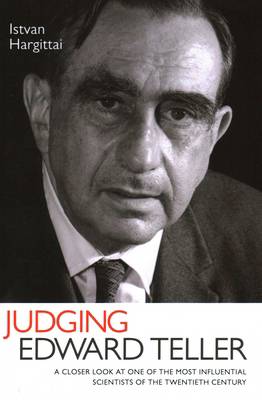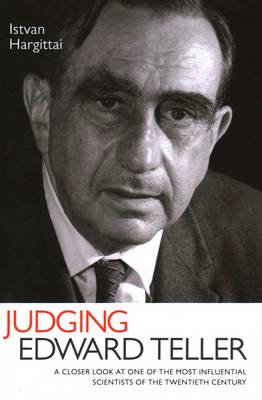
Bedankt voor het vertrouwen het afgelopen jaar! Om jou te bedanken bieden we GRATIS verzending (in België) aan op alles gedurende de hele maand januari.
- Afhalen na 1 uur in een winkel met voorraad
- Gratis thuislevering in België vanaf € 30
- Ruim aanbod met 7 miljoen producten
Bedankt voor het vertrouwen het afgelopen jaar! Om jou te bedanken bieden we GRATIS verzending (in België) aan op alles gedurende de hele maand januari.
- Afhalen na 1 uur in een winkel met voorraad
- Gratis thuislevering in België vanaf € 30
- Ruim aanbod met 7 miljoen producten
Zoeken
Omschrijving
Many people know Edward Teller as the "Father of the H-Bomb." To his supporters he was a hero of the Cold War. To his detractors he was evil personified. Between these extremes was the life of the real man. In this definitive and comprehensive biography, a personal acquaintance of Teller's presents a balanced portrait of the multifaceted and enigmatic scientist against the backdrop of a turbulent period of history. Taking pains to avoid bias and preconceptions, thr author critically examines Teller's personality, family background, and the experiences that guided his actions-correcting many of the myths that others and Teller himself promulgated. Drawing for the first time on hitherto unknown archival material from Hungarian, American, and German sources, the author provides fresh insights that help the reader to understand Teller's motivations, his relationships with friends and foes, and his driven personality. In addition to this research and his own memories of Teller, Hargittai has interviewed such prominent figures as Richard Garwin, Freeman Dyson, George A. Keyworth, and Wendy Teller (Edward Teller's daughter), among others. The author reviews the significant facets of Teller's life: his Jewish-Hungarian origins, forced emigrations, brilliance in science, and devotion to the defense of the United States. He discusses Teller's ruthless Machiavellism in achieving his goals, which included his pivotal role in the creation of the hydrogen bomb and the second weapons laboratory at Livermore, as well as his damaging testimony against physicist J. Robert Oppenheimer. Teller's peers viewed this testimony as a betrayal and, in effect, sent him into internal exile, which Hargittai describes as more tormenting to him than his previous emigrations. The author notes that Teller was sometimes called "a monomaniac with many manias," such as his fierce opposition to nuclear test bans during the Cold War and, toward the end of his life, his role as propagandist for the Strategic Defense Initiative. Yet, his very excesses may have in fact contributed to the demise of the Soviet Union. Who was Edward Teller-the real "Dr. Strangelove," the driven crusader for the H-Bomb, the villain who destroyed Oppenheimer, or the devoted husband, loyal friend, patriot, and strongly idealistic scientist? This monumental work will reveal the contradictory nature of this complex man in all his strengths, flaws, and brilliance.
Specificaties
Betrokkenen
- Auteur(s):
- Uitgeverij:
Inhoud
- Aantal bladzijden:
- 600
- Taal:
- Engels
Eigenschappen
- Productcode (EAN):
- 9781616142216
- Verschijningsdatum:
- 1/10/2010
- Uitvoering:
- Hardcover
- Formaat:
- Ongenaaid / garenloos gebonden
- Afmetingen:
- 162 mm x 236 mm
- Gewicht:
- 938 g

Alleen bij Standaard Boekhandel
+ 69 punten op je klantenkaart van Standaard Boekhandel
Beoordelingen
We publiceren alleen reviews die voldoen aan de voorwaarden voor reviews. Bekijk onze voorwaarden voor reviews.









